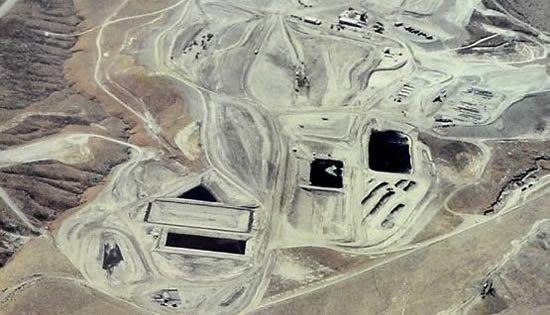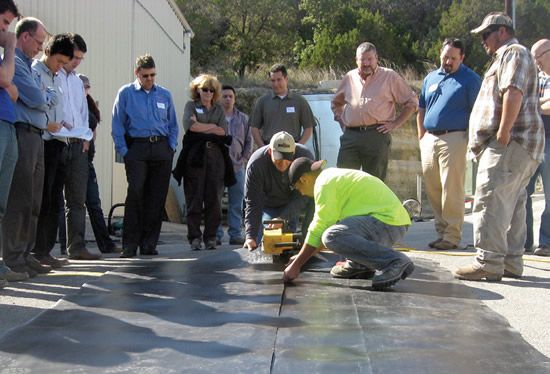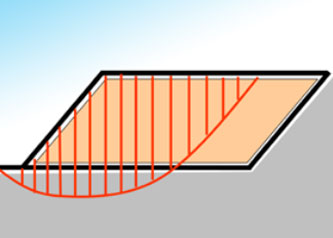Short Course Training Week (May 7 – 11) is coming to Austin, Texas, where TRI Environmental will host four courses and two certification opportunities for professionals involved in CQA, waste management, lined facility design and management, and affiliated sectors. Of note, this year’s spring gathering includes a new course: Slope Stability of Containment Systems.
The May 7 – 8 slope stability course is led by Dr. Jeffrey Kuhn, P.E. (TRI) and Dr. Ranjiv Gupta, P.E. (Freeport-McMoRan). The team first presented the course a year ago, and demand for its inclusion in training week activities has been strong. For attendees who want to take the slope stability course and one or both of the field CQA courses, which are held on May 9 and 10, they now have a way to take advantage of a full suite of professional development in one visit.
REGISTER ONLINE
DOWNLOAD TRAINING WEEK BROCHURE (PDF)

Slope stability expertise, leak location services, and field CQA personnel are all in high-demand for municipal and hazardous waste landfills, coal ash surface impoundments, heap leach pads, and more. Short Course Training Weeks helps engineers and affiliated business add/enhance these skills and develop new revenue streams.
SLOPE STABILITY, LEAK LOCATION, AND CQA TRAINING
Short Course Training Week provides CQA professionals, specifying/certifying engineers, regulators, and other stakeholders an opportunity to increase their awareness of and expertise with geosynthetic and compacted clay liner installations. This includes training opportunities in the performance of electrical leak location (ELL) surveys, CQA for different installation scenarios, a tour of a geosynthetics testing laboratory, access to high-level instructors with a wealth of field history, and more.
Slope Stability of Containment Systems
May 7 – 8
Slope Stability of Containment Systems provides insight from the independent testing and geoenvironmental consulting & owner’s perspectives on a wide range of containment structures (e.g., municipal and hazardous waste landfills, coal ash surface impoundments, heap leach pads). These facilities are constructed using multiple layers of geosynthetic materials such as geomembranes, geotextiles, geonets, geocomposites, and geosynthetic clay liners (GCL). The design of a containment structure not only requires an understanding of the properties of each individual geosynthetic material but also the ability to comprehend the interaction mechanism (friction) between various geosynthetic layer interfaces.
Liner Integrity Survey / Assessment Training
May 7 – 8
The two-day course on electrical leak location (liner integrity surveys) for geosynthetic-lined facilities is led by TRI’s Director of Liner Integrity Services, Abigail Gilson. Jeffrey Blum, a Senior Project Manager for Weaver Consultants Group and a seasoned graduate of the liner integrity survey training program, will also be on hand to work with participants. Industries of interest: waste management, water resource conservation, lined tanks, mining, and more. The course will focus on leak location methodologies, design parameters, equipment options, and how to enhance or add this skill within a participant’s business. Simulation of ELL surveys is included. Participants have the option to advance to a Level 2 ELIS certification through TRI Environmental.
Construction QA/QC for Geosynthetic Installations
May 9
Construction QA/QC for Geosynthetic Installations is the first of two field CQA/CQC short courses offered during Short Course Training Week. This May 9 course can be taken as a standalone course or be paired with the May 10 short course, Construction QA/QC for Compacted Clay Liner and GCL Installation. The content of the two courses complement one another. The May 9 course is designed specifically for those who need a detailed understanding of proper CQC and CQA procedures at waste containment facilities. Key professionals who benefit from the training include third-party inspectors, specifying/certifying engineers, project managers, installers, contractors, CQA personnel, and regulators. The content focuses on the installation of geomembranes, geotextiles, geocomposites, geogrids, and geo-appurtenances. It includes demonstrations of geomembrane seaming and seam peel and shear testing. The course provides ideal training as well for those seeking GCI-ICP certification. (See May 11 exam note below.)

Field CQA short course participants observing how geomembrane seaming is conducted on critical lining systems during a Training Week event in Austin, Texas.
Construction QA/QC for Compacted Clay Liners and GCL Installations
May 10
Construction QA/QC for Compacted Clay Liner and GCL Installation is the second of two field CQA/CQC short courses. This course can be taken as a standalone course or be paired with the May 9 short course, Construction QA/QC for Geosynthetic Installations. The May 10 content focuses on the installation of compacted clay liners (CCLs) and geosynthetic clay liners (GCLs). Special emphasis will be given to establishing rationale and standard operating procedures for field inspections, documentation of test and visual observations, and implementation of CQA plans. A broad appreciation for the manufacture and installation of containment facility materials will be provided. Additionally, a tour of TRI’s Geosynthetic Testing and Research Laboratories will support class curriculum through test demonstrations, details on some TRI internal R&D projects, and discussion of other relevant topics. The course provides ideal training as well for those seeking GCI-ICP certification. (See May 11 exam note below.)
GCI-ICP Certification Exams
May 11
CQA course students will be allowed to sit for the Geosynthetic Certification Institute-Inspectors Certification Program (GCI-ICP) exams immediately following the CQA courses. The GCI-ICP exam has two parts, either or both of which participants may seek recognition for: Geosynthetics Materials and/or Compacted Clay Liners. All exam-interested students MUST REGISTER with the Geosynthetic Institute (GSI) and pay GSI’s certification fee before the test. TRI does NOT collect this fee. Contact GSI (+1 610 522 8440) for more information.












